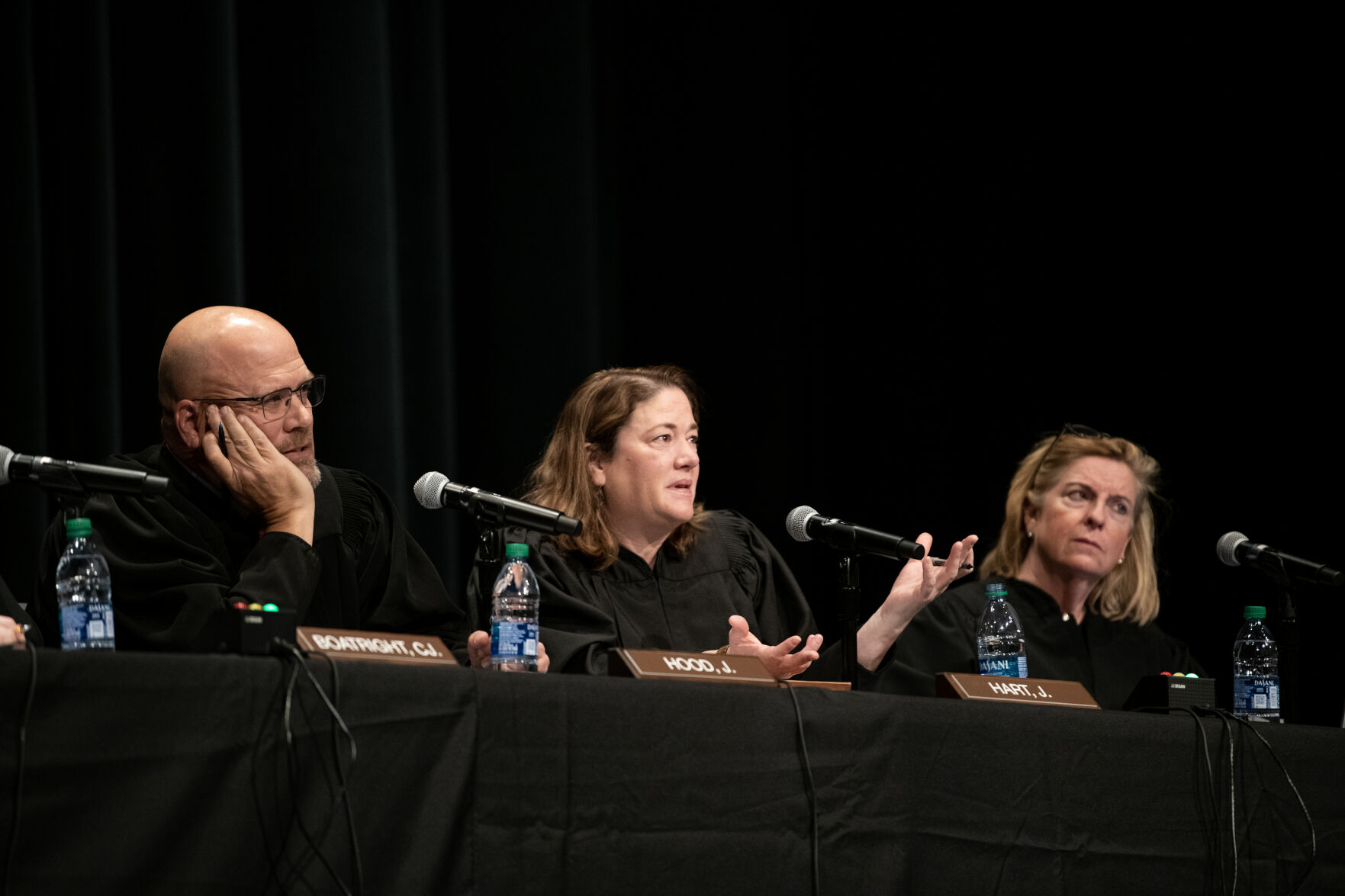State Supreme Court abandons case questioning constitutionality of mental health law

In an unusual move taken days after hearing oral arguments, the Colorado Supreme Court announced it will not render a decision after all on the constitutionality of a state law governing mental health commitments for criminal defendants.
Last May, the justices agreed to consider the appeal of John Salvadore Cruz, who was acquitted of murder in 1992 by reason of insanity and committed to the Colorado Mental Health Institute at Pueblo for treatment. The same year as Cruz’s trial, the U.S. Supreme Court handed down its decision in Foucha v. Louisiana, clarifying that states can only keep people like Cruz committed so long as they are both mentally ill and a danger to themselves or others.
However, Colorado law contains an apparent exception to those criteria: A defendant who is allowed to live in the community with supervision must be re-institutionalized if he refuses to participate in a mental health evaluation.
After one of the state’s appellate judges raised her belief that such a requirement violated Foucha, the Colorado Supreme Court agreed to weigh in.
Following oral arguments on Tuesday, though, the justices had a change of heart. The court issued a Feb. 9 order dismissing Cruz’s appeal without elaboration.
Meredith O’Harris, a former public defender who continued representing Cruz when she left for private practice, declined to speculate about why the justices abandoned the appeal.
“Allowing individuals to be indefinitely imprisoned in a state psychiatric hospital without a valid basis is inhumane and unconstitutional,” she said. “In addition, it is a manifest injustice to Mr. Cruz to have his case proceed through the appellate courts for many years, at considerable expense to Coloradans, without any resolution” of the constitutional question.
During oral arguments, there were signals of concern from the justices about a lack of similar cases elsewhere in the country in the 30 years since Foucha was decided.
Foucha “doesn’t actually deal with the problem that we’re confronted with now,” said Justice William W. Hood III.
“The seven of us up here obviously don’t seem to necessarily agree with each other about how to think about the Supreme Court case or the statute,” added Justice Melissa Hart.
Following Cruz’s insanity-based acquittal for the murder of Lucille Archuleta, he remained at CMHIP for treatment. In 2006, Cruz received permission to live in the community under state supervision, known as conditional release. Under Colorado law, conditional release is appropriate when there is “no abnormal mental condition which would be likely to cause the defendant to be dangerous.”
In 2017, CMHIP became skeptical of Cruz’s compliance with his release conditions. Specifically, Cruz was allegedly abusing pain medication and developed financial troubles after receiving a large settlement from a traffic accident. Cruz’s girlfriend was also allegedly threatening Cruz over the money. A CMHIP employee testified about these “destabilizers in his personal life” as a motivation for seeking Cruz’s re-commitment to the facility.
Cruz voluntarily checked in to treatment and while there, psychiatrist Lennart Abel attempted to evaluate Cruz. Quickly, Cruz recognized Abel and refused to participate further in the evaluation, believing the outcome was “predetermined.” Based on Cruz’s lack of participation, a Pueblo County judge revoked his release under state law.
Cruz appealed, arguing multiple illegalities occurred in the state’s attempt to re-commit him to the mental hospital. The court order did not specify the time period for an evaluation, Abel’s evaluation occurred beyond the legal deadline and he failed to record it, Cruz said.
A three-judge panel of the Court of Appeals conceded Cruz was correct, but found the errors did not affect him. A majority of the panel further refused to evaluate his claim that the law requiring re-commitment for a failure to participate in a psychiatric evaluation violated U.S. Supreme Court precedent.
One judge, JoAnn L. Vogt, disagreed. She cited the 1992 Foucha decision, in which Louisiana continued to institutionalize a defendant because he remained a danger to himself, but had no mental illness. A majority of the Supreme Court concluded a state must prove by “clear and convincing evidence” that a person is both mentally ill and dangerous to justify continued detention.
“Revoking Cruz’s conditional release simply for noncooperation with a psychiatric examination violated his due process right to liberty,” wrote Vogt in August 2021, adding that she believes Colorado’s law is unconstitutional.
During oral arguments before the state’s highest court, the justices grappled with the implications of allowing a defendant to live in the community under conditions, but telling the state it could not re-institutionalize the person for a violation of the conditions.
“It’s just, ‘I win every time because I refused?'” asked Hart.
“Why aren’t the conditions of conditional release completely unconstitutional?” added Justice Maria E. Berkenkotter.
“I think they might be,” O’Harris said.
On the other hand, the court was skeptical of the government’s position that Cruz could still remain mentally ill and dangerous despite his years of conditional release without incident.
“Surely, that’s not why we put people back into the community,” Hood pointed out.
Although there were no similar cases to Cruz’s outside of Colorado, O’Harris attempted to illustrate why the penalty of automatic revocation for noncooperation is constitutionally problematic.
“If a defendant doesn’t cooperate with his jury trial, we don’t bypass the jury trial and we don’t say the state doesn’t have to prove you’re guilty beyond a reasonable doubt anymore,” she said.
Even so, responded Hood, “I just struggle with the absence of any precedent that seems to go where you want us to go here. And (Foucha has) been on the books for over 30 years.”
O’Harris did not say whether she plans to appeal Cruz’s case to the U.S. Supreme Court.
The case is Cruz v. People.













